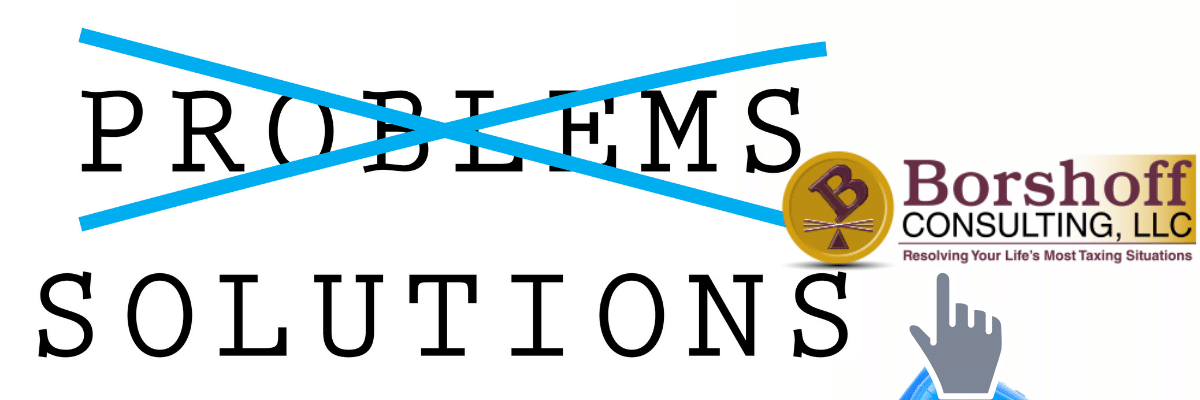There are many types of Taxes, let’s start with federal, state, and local income taxes. If you’re a business owner, you deal with payroll taxes. If you buy something, you may pay a sales tax. Unemployed? You are required to pay taxes on the benefits received from the federal and state government.
Important Reminder: Tax Times Have Changed, in that the biggest set of tax law changes in more than 30 years recently took place. The IRS is even raising that flag in encouraging taxpayers to do Paycheck Checkups to help ensure they have the proper amount of tax withheld from their paychecks. Make a withholding mistake and it will cost you financially.
Understanding the Differences, between Tax Planning; working smart to keep you from paying more tax than is necessary, and Tax Evasion; not paying taxes by using illegal methods; is the difference between benefitting financially from our tax laws, rather than being subjected to major penalties and fines from the IRS. The most common willful acts of tax evasion are under-reporting income, over-reporting expenses and failure to report taxes like sales and payroll taxes. The IRS catches this, and as we all know from history, a willful act of tax evasion can land you in prison!
In this blog we will cover 4 Major Tax Problems, and what you can do to avoid them.
AUDITS
Mail Audits: Audits can happen by Mail; when the IRS sends a notice requesting additional documentation to back up various items reported on your tax return. This is the easiest type of IRS audit, doesn’t require that you meet with the IRS, can be resolved most times by you providing proof in the form of additional documents.
Office Audits: An in-person audit is conducted at your local IRS office. More in-depth, involves you answering the IRS auditor’s questions about information and specific items on your tax return. Bring specific information with you, any records or financial ledgers for your business or your personal bank statements and receipts. It would be wise, since it is your right, to have your financial professional or attorney present so they can represent you at this meeting.
Field Audits: The Most Detailed of the audits the IRS conducts. The IRS agent conducts the field audit at your home or place of business. The field audit occurs when the IRS has questions about many or most of the information and items on your tax return.
Outcomes:
- The IRS is satisfied with your explanations and the documentation you provide, and nothing changes on your tax return.
- The IRS proposes changes to your tax return, and you can agree and accept their changes. You would then sign a form provided to you by the IRS and agree to a payment arrangement.
- You disagree with their findings; you have the option of setting up a conference with an IRS Supervisor or Manager to review your case further or you can appeal their decision altogether.
- When you receive a notification that you are being audited, your best move is to immediately hire a tax professional. They will help you best navigate through the audit process and will help prevent you from being audited moving forward.
LATE or UNFILED RETURNS
WHY LATE or UNFILED? Reasons, why people fail to file returns, range from thinking you have not earned enough money needed to file; confusion about tax laws; to dealing with personal issues and they forgot to file their returns.
Outcome: Regardless of the reasons, you can be hit with tax and interest penalties for being late or failing to file your return all together. Your best option is to hire professional representation, an Enrolled Agent who understands all the tax rules so they can negotiate down any penalties and get you a better arrangement for that year and help you avoid a similar situation moving forward.
LIENS and LEVIES
LIENS: A Tax Lien attaches to your property and legally prevents you from selling the said property without paying the tax bill.
LEVIES: A Tax Levy takes the property from you in order to pay the tax debt you owe the government.
Outcomes:
- Cars, houses, bank accounts, wage garnishments are the most common ways the IRS can come at you in getting paid!
- You can avoid that outcome by consulting your tax professional and putting together a well thought out game plan.
- Options like providing the IRS with an offer in compromise or an installment payment plan can soften the blow of your Lien or Levy.
- Having a tax professional who is familiar with the new tax laws represent you, is your best route to avoiding having your property seized by the IRS.
SPOUSAL LIABILITY
The What: When your spouse or ex-spouse has incurred a tax debt from a previous income tax filing. This is a very common and major tax problem for many people.
Outcomes: If this happened before you were married, then you are not liable for your spouse’s debt.
- You can be liable if you file jointly, then any tax refund that you were to receive can be taken and used to pay off part of your spouse’s tax debt.
- If you find yourself in this situation, know that your spouse or ex-spouse cannot receive money back from the IRS until they pay what they owe.
- If you’ve filed jointly, you are also responsible for any penalties or interest related to your spouse’s tax debt.
- Best Outcome: To avoid liability for your spouse’s tax debt, you can file a request for Innocent Spouse Relief, Equitable Relief and Separation of Liability Relief. Your tax professional can take care of everything for you.
Tax problems arise all the time, the best way to avoid them is to get quality advice from your tax professional. This will save you time, money and unnecessary stress and heartache.
In Conclusion, your very best tax game plan is to consult a tax professional, have them help you create a year-round plan so you can SAVE MONEY and avoid any stress, pain or financial loss at tax time. Do this and you will end up keeping more of your hard-earned money rather than giving it to the IRS. We are here to help you. Schedule your free consultation today.





